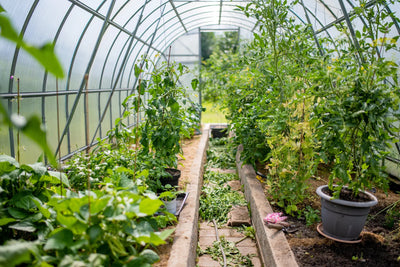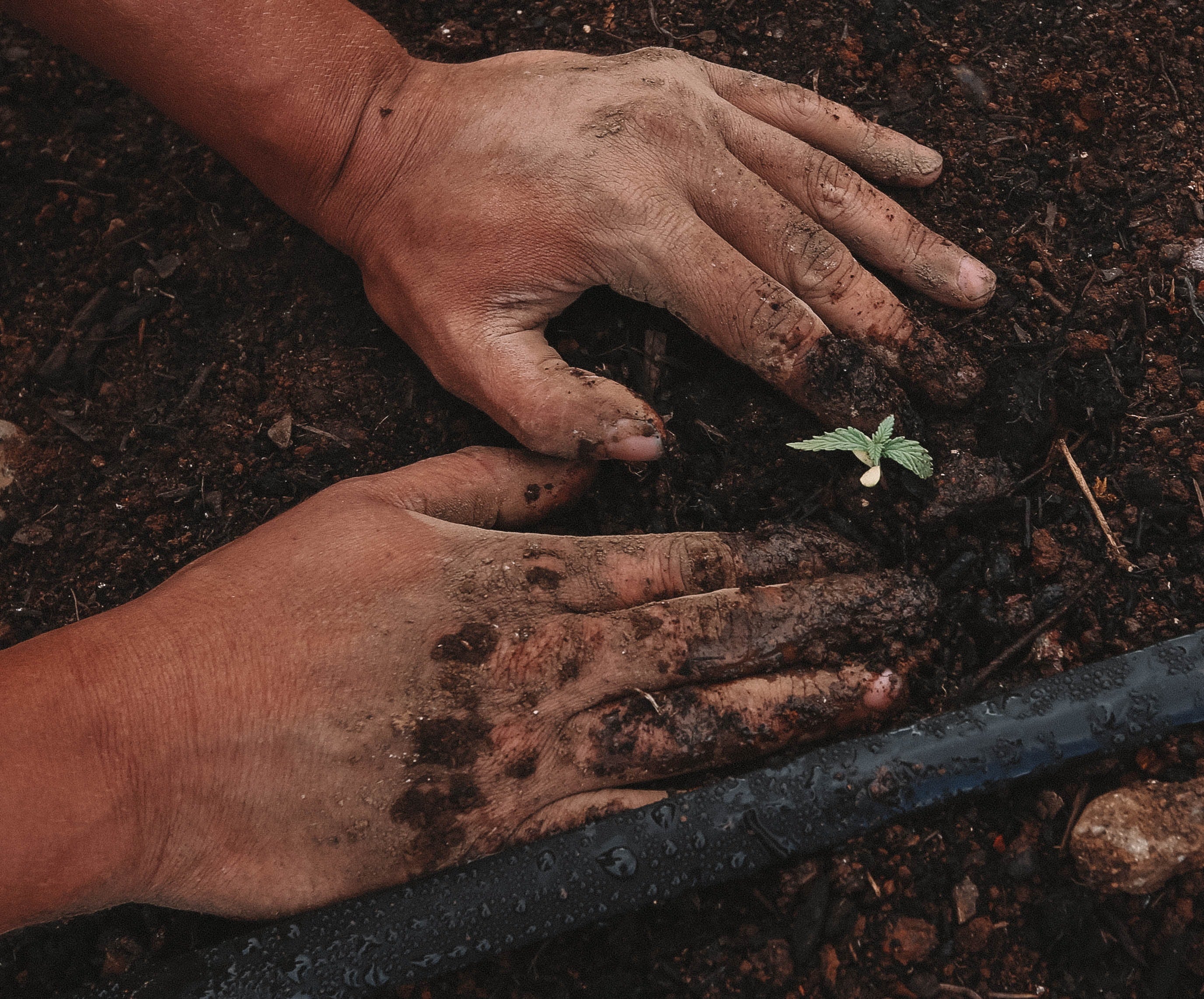Imagine stepping into your kitchen and snipping fresh basil or thyme straight from a thriving herb garden you propagated yourself. Picture the aroma of fresh herbs wafting through your kitchen, ready to elevate your dishes with unparalleled flavor.
Propagating herbs and spices is a cost-effective, rewarding way to keep your garden growing year-round, offering endless culinary and aesthetic benefits. Whether you’re a beginner testing your green thumb or an experienced gardener, this guide will walk you through the basics when you propagate.
What Is Propagation?
Propagation is the process of creating new plants from seeds, cuttings, or other plant parts. This essential gardening technique enables you to expand your collection of herbs and spices without constantly buying new plants.
Beyond its practicality, propagation fosters a deeper connection to your garden, allowing you to nurture plants from their earliest stages and create a vibrant, self-sustaining ecosystem. Plus, propagating ensures your garden remains lush and productive according to hoselink.com.
Why Propagate Herbs and Spices?
Cost Savings: Propagation eliminates the need to repeatedly purchase plants.
Sustainability: By propagating your own herbs, you reduce waste and take a step toward eco-friendly.
Customization: Select the healthiest, most robust plants when you propagate.
Convenience: Enjoy the satisfaction of having a steady supply of fresh herbs at your fingertips.
Creative Experimentation: Experiment with different propagation methods to learn what works best for various herbs.
Tools You Need for Propagating Herbs and Spices
Before diving into propagation, gather the following tools:
Clean scissors or pruning shears
Small pots or containers
High-quality potting mix
Rooting hormone (optional)
Spray bottle for misting
Clear plastic bags (for humidity control)
Having the right tools makes it propagate easier and increases your success rate.
Methods of How to Propagate Herbs and Spices
There are several ways to propagate herbs and spices. The method you choose will depend on the type of herb and your gardening preferences.
1. Propagate by Cuttings
Propagation by cuttings is one of the simplest and most effective methods for many herbs, including basil, mint, and rosemary.
Steps to Propagate Herbs by Cuttings:
Choose Healthy Cuttings: Select a healthy, non-flowering stem about 4-6 inches long.
Trim the Cutting: Remove the lower leaves, leaving only a few at the top.
Optional - Use Rooting Hormone: Dip the cut end into rooting hormone to encourage faster root development.
Plant the Cutting: Place the cutting into a small pot filled with moist potting mix or water.
Maintain Humidity: Cover the pot with a clear plastic bag to create a mini greenhouse.
Monitor Growth: Keep the cutting in a warm, bright spot (but out of direct sunlight) and mist regularly. Roots should develop within 1-2 weeks.

2. Propagate by Division
This method works well for herbs like chives, oregano, and lemongrass.
Steps to Propagate by Division:
Uproot the Plant: Carefully propagate the mature plant from its pot or garden bed.
Separate the Clumps: Gently divide the root ball into smaller sections, ensuring each has roots attached.
Replant: Place the divided sections into individual pots or garden beds with fresh soil.
Water Thoroughly: Keep the soil moist while the new plants establish themselves.
3. Propagate by Seeds
Some herbs, such as cilantro and dill, are best propagated by seeds.
Steps to Propagate by Seeds:
Prepare the Soil: Fill pots or seed trays with nutrient-rich potting mix.
Sow the Seeds: Scatter the seeds evenly and lightly cover with soil.
Water Gently: Mist the soil with water to keep it moist.
Provide Warmth and Light: Place the containers in a warm, sunny location.
Wait for Germination: Most herb seeds germinate within 1-3 weeks.
Best Herbs and Spices to Propagate
Not all herbs and spices are equally suited for propagation. Here are some of the easiest and most rewarding options:
Basil: Propagates easily from cuttings in water.
Mint: Thrives when propagated through stem cuttings.
Rosemary: Requires patience but is resilient once rooted.
Thyme: Can be propagated by division or cuttings.
Chives: Perfect for a propagate garden by division.
Lemongrass: Simple to propagate by rooting stalks in water.
Common Mistakes to Avoid When You Propagate Herbs
While propagating herbs is relatively straightforward, there are a few common pitfalls to watch out for:
Using Dirty Tools: Always sanitize your tools to prevent disease according to earthsally.com.
Overwatering: Too much water can lead to root rot. Keep the soil moist but not soggy.
Inadequate Light: Herbs need bright, indirect light to thrive during propagation.
Neglecting Humidity: Many herbs root better in a humid environment. Use a plastic bag or mist frequently.
Caring for Your Propagated Herbs
Once your herbs are rooted and thriving, proper care is essential to keep them healthy.
Tips for Thriving Herbs:
Watering: Keep the soil consistently moist but avoid overwatering.
Pruning: Regularly trim your herbs to encourage bushier growth.
Fertilizing: Use a diluted, organic fertilizer every few weeks to boost growth.
Pest Control: Watch for pests like aphids and treat with natural remedies if needed.

Benefits of a Thriving Kitchen Garden
Enhance Your Garden with Seed Armory Herbs
Looking to take your kitchen garden to the next level? Seed Armory offers a premium selection of herb seeds to get you started. Here are five exceptional varieties that will be perfect to propagate:
Genovese Basil: Perfect for Italian dishes, this aromatic herb is ideal for making fresh pesto, salads, and sauces.
Common Dill: Known for its feathery foliage and tangy flavor, dill is a must-have for pickling and seafood recipes.
English Lavender: Not just fragrant, lavender is great for teas and baking, and it attracts pollinators to your garden.
German Chamomile: Famous for its calming properties, chamomile flowers can be brewed into soothing herbal teas.
Summer Savory: With a peppery flavor, this herb complements meats and bean dishes beautifully.
All Seed Armory seeds are 100% heirloom, non-GMO, and selected for robust growth and flavor. Check out their full collection to start building your perfect herb garden today.
Visit Seed Armory Herb Seeds Collection
Add their unique touch to your thriving garden!
Benefits of a Thriving Kitchen Garden
A well-maintained kitchen garden offers numerous advantages:
Fresh Ingredients: Always have fresh, flavorful herbs for your meals.
Cost Savings: Save money on grocery store herbs.
Sustainability: Reduce your carbon footprint by growing your own food.
Aesthetic Appeal: A lush, green herb garden adds beauty to your kitchen.
Propagating Your Own Herbs and Spices in a Thriving Kitchen Garden
Propagating herbs and spices is a rewarding way to grow your kitchen garden while saving money and contributing to a sustainable lifestyle. With the tools, methods, and care, you’ll enjoy fresh, aromatic herbs year-round. Whether you’re propagating basil for your favorite pasta dish or mint for refreshing teas, this guide has everything you need to get started. Happy gardening!











